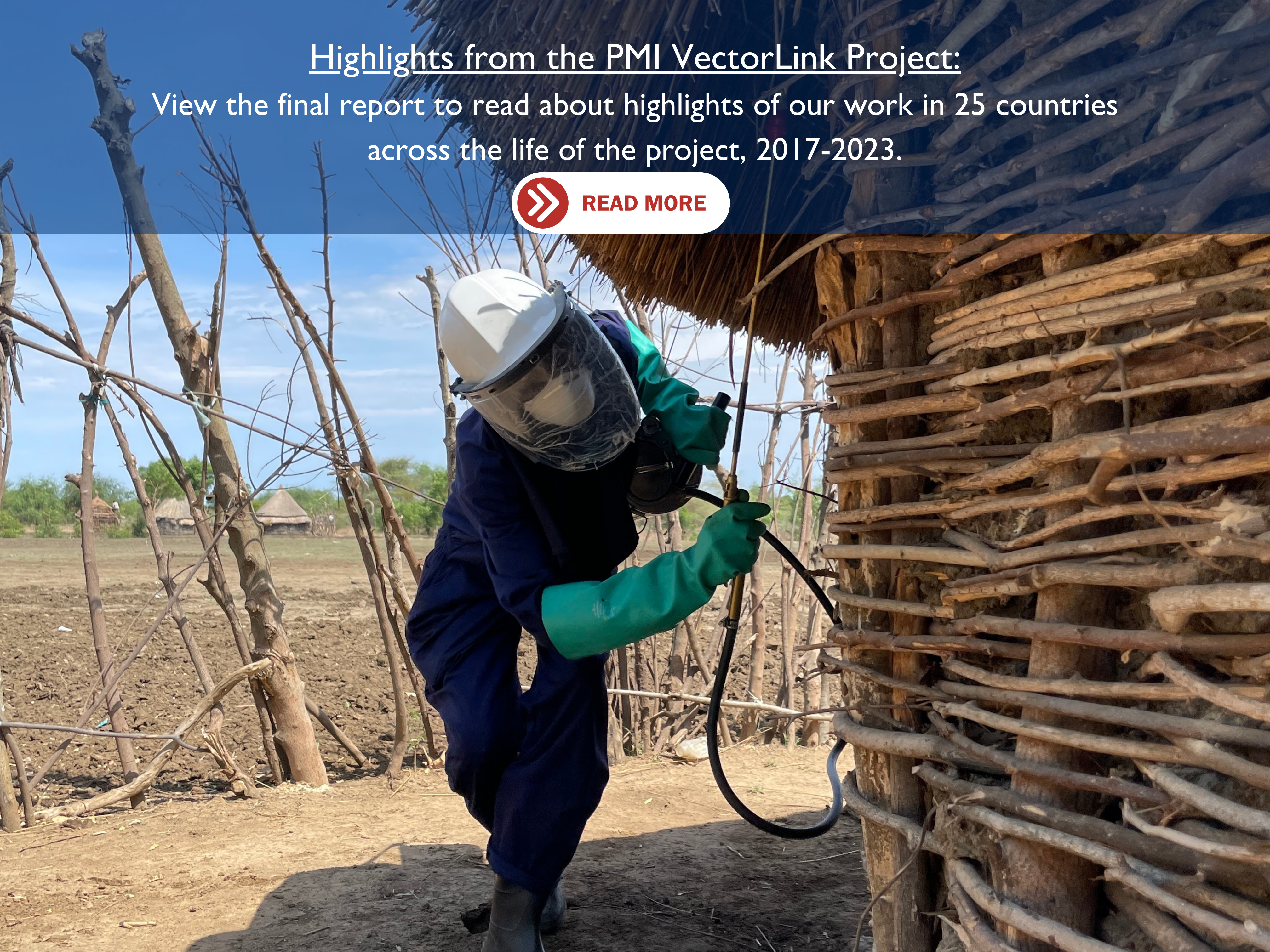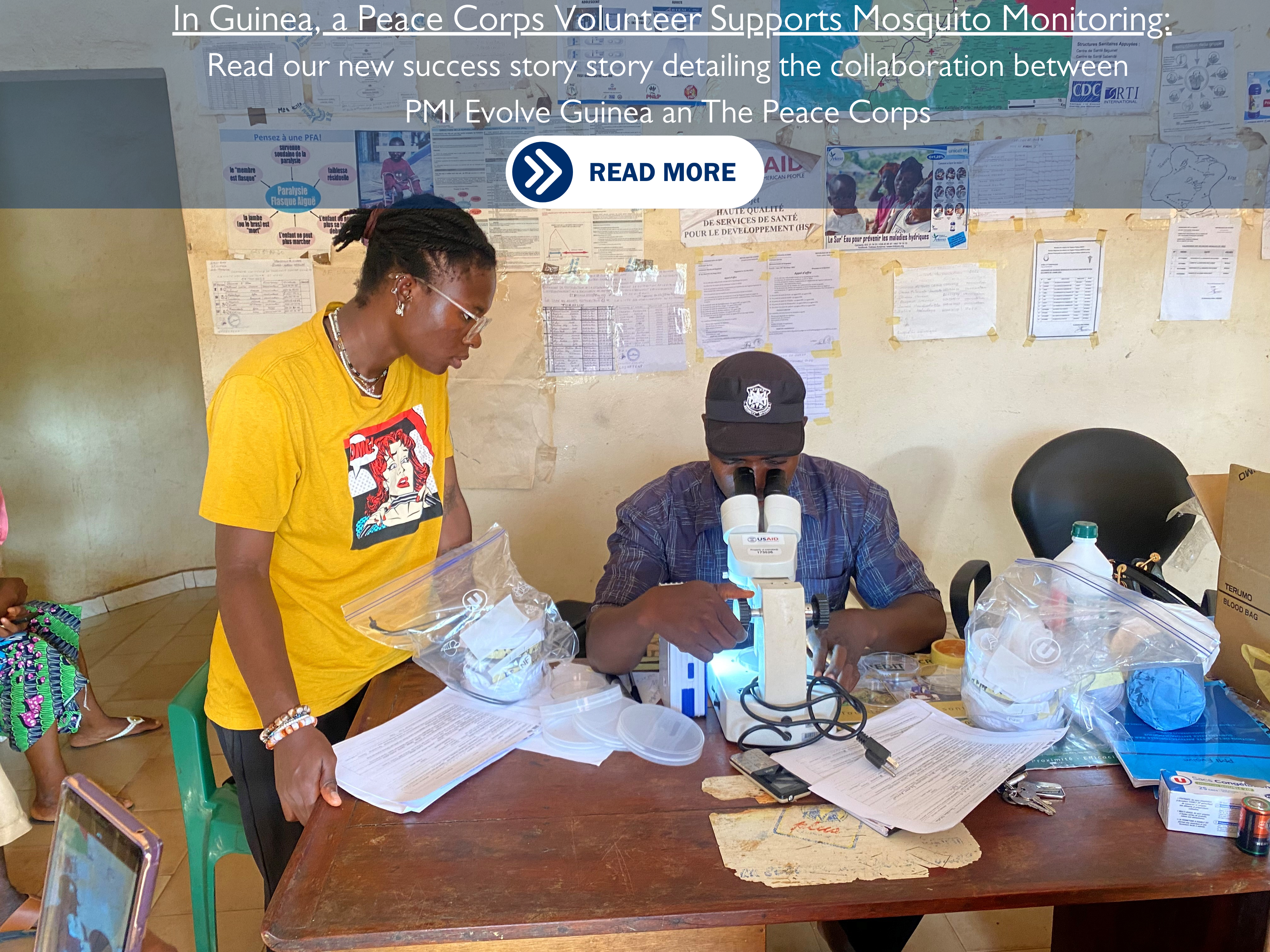The U.S. President’s Malaria Initiative (PMI) has partnered with country governments since 2006 in the fight against malaria, often taking the lead in implementing prevention efforts in malaria-endemic communities. Last year, PMI worked with Madagascar’s National Malaria Control Program (NMCP) […]
Read MoreStories
PMI Evolve Publishes Year 1 Annual Report 2023
PMI Evolve has published its Year 1 Annual Report, providing an overview of the project work accomplished between January 1 and December 31, 2023. The report highlights the many achievements made through our work with the U.S. President’s Malaria Initiative […]
Read MoreBringing the Malaria Fight Home: Women in Nigeria Lead the Way in Community-Based Mosquito Collection
In Nigeria, communities have historically relied on information about mosquitoes, malaria parasites, and malaria transmission from government or aid groups. Now for the first time, community members, such as health worker Rashida Umar, are taking charge of understanding and teaching […]
Read MoreProtecting Populations from Malaria through Mass ITN Distribution: Zambia’s Mateyo Moyo
In the heart of Zambia’s Luapula Province, Mateyo Moyo, the chief environmental health officer in Luapula’s Provincial Health Office, stands as a beacon of dedication in the fight against malaria. Known by many simply as “Chief,” his vision, commitment, leadership, […]
Read MorePMI VectorLink Project Final Report Highlights Six Years of Vector Control Achievements
The U.S. President’s Malaria Initiative (PMI) VectorLink Project was a global, six-year program that ran from October 2017 through September 2023. The project’s goal was to support PMI in conducting entomological monitoring, indoor residual spraying (IRS), distribution of insecticide-treated nets […]
Read More




